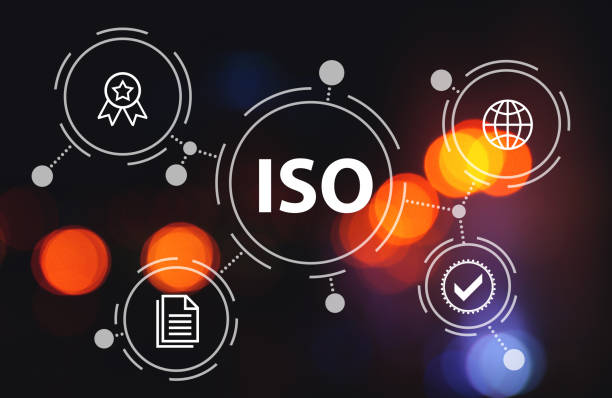What is SEO and Why is it Important?

#SEO, or Search Engine Optimization, is the process of improving a website’s ranking in the search results of search engines like Google, Bing, and Yahoo.
The main goal of #SEO is to increase organic (non-paid) traffic to the website.
The importance of #SEO stems from the fact that most internet users use search engines to find the information, products, or services they need.
If your website is ranked high in search results, it is more likely to be seen and visited by users, which can lead to increased sales, increased brand awareness, and the achievement of other business goals.
SEO is a long-term marketing strategy that requires patience, effort, and sufficient knowledge in this field.
SEO consists of two main parts: on-page SEO and off-page SEO.
On-page SEO includes optimizing site content, site structure, site speed, and site user experience.
Off-page SEO includes link building, content marketing, and presence on social networks.
SEO is a complex and time-consuming process that requires sufficient knowledge and experience.
One of the most important factors in SEO is site content.
Site content should be high-quality, relevant, and useful.
Also, the site content should be optimized for the desired keywords.
Another important factor in SEO is site structure.
The site structure should be such that search engines can easily find the site’s content.
Also, the site structure should be easy for users as well.
How much does losing business leads due to an unprofessional site cost you? Solve this problem forever with professional corporate website design by Rasaweb!
✅ Increase credibility and trust of potential customers
✅ Easier attraction of new business leads
⚡ Get a free consultation now!
Keyword Research, the Foundation of SEO

Keyword research is the process of identifying and analyzing the words and phrases that users use to search for information on search engines.
This process is critical to success in SEO because it helps you optimize your website content based on the needs and interests of your target audience.
By identifying the right keywords, you can create content that answers users’ questions and improves your website’s ranking in search results.
There are various tools for performing keyword research that can help you find relevant keywords, their search volume, and the level of competition for them.
Some of these tools include Google Keyword Planner, Ahrefs, SEMrush, and Moz Keyword Explorer.
After identifying the appropriate keywords, you should use them strategically in your website content, including titles, meta descriptions, body text, and image tags.
Choosing the right keywords can significantly increase your site traffic.
Using inappropriate keywords can lead to failure in SEO.
To choose the right keywords, you should pay attention to the following points:
- Relevance of keywords to the site topic
- Search volume of keywords
- Level of competition for keywords
On-Page SEO Techniques and Strategies

#On-Page SEO refers to a set of actions that are performed within your website to improve its ranking in search results.
These actions include optimizing content, site structure, title tags, meta descriptions, internal links, site speed, and user experience.
The main goal of #On-Page SEO is to enable search engines to easily understand your website content and display it to relevant users.
Content is king! High-quality, relevant, and unique content is one of the most important factors in #On-Page SEO.
Make sure your website content answers users’ questions, provides valuable information, and uses appropriate keywords.
Optimizing title tags and meta descriptions is essential to improving click-through rate (CTR) from search results.
Also, improving site speed and providing a good user experience play an important role in your website’s ranking.
Below is a table of the most important #On-Page SEO tips.
| Factor | Description |
|---|---|
| Page Title | The page title should be attractive, relevant, and contain the main keyword. |
| Meta Description | The meta description should be a summary of the page content and encourage the user to click. |
| Content | The content should be high-quality, relevant, unique, and contain keywords. |
| Internal Links | Internal links to other pages of your website help search engines better understand your website content. |
| Site Speed | The site speed should be high so that users have a good user experience. |
By following these tips, you can improve your website’s #On-Page SEO and increase its ranking in search results.
Off-Page SEO, Link Building, and Domain Authority

#Off-Page SEO refers to a set of activities that are performed outside of your website to improve its ranking in search results.
The most important part of #Off-Page SEO is link building.
Link building means receiving links from other websites to your website.
The more links you receive from reputable and relevant websites, the higher your domain authority and the better your website’s ranking in search results.
Domain Authority is a metric for measuring the credibility and strength of a domain, provided by Moz.
This metric is calculated based on various factors such as the number and quality of inbound links, domain age, and #SEO activities.
The higher your domain authority, the more likely your website is to rank in search results.
For #Off-Page SEO, there are various methods you can use:
- Creating engaging and shareable content
- Participating in social networks
- Building relationships with other websites and blogs
- Submitting your website to online directories
Tired of your online store not generating as much revenue as its potential? Rasaweb, a specialist in professional online store design, solves this problem for good!
✅ Increase sales and revenue significantly
✅ High loading speed and exceptional user experience
⚡ Get a free consultation for online store design
Technical Site Optimization, Structure, and Speed

Technical Site Optimization (Technical SEO) refers to a set of actions that are performed to improve the technical performance of the website and increase its accessibility for search engines.
These actions include improving site structure, site speed, crawlability, indexability, and mobile-friendliness.
The site structure should be logical and organized so that search engines can easily find and understand your website content.
Site speed is also an important factor in ranking.
Internet users expect websites to load quickly, and if your website is slow, you may lose users.
Also, your website should be mobile-friendly, as most internet users access websites via mobile devices.
#SEO does not only cover technical aspects, but also requires a general and comprehensive view of the website.
A fast website can provide a better user experience for visitors and help improve site ranking in search engines.
To increase site speed, you can use various methods such as:
- Optimizing images
- Using a CDN
- Enabling compression
- Optimizing code
Quality Content, the King of SEO

High-quality and valuable content is one of the most important factors in #SEO.
Search engines are looking for websites that provide relevant, useful, and unique content to their users.
If your website has high-quality content, it is more likely to rank in search results and gain more organic traffic.
High-quality content should answer users’ questions, provide valuable information, use appropriate keywords, and be updated regularly.
Also, your content should be readable and engaging to keep users on your website and reduce the bounce rate.
#SEO and content production are two sides of the same coin.
To produce high-quality content, you can use the following tips:
- Keyword research
- Choosing attractive and relevant topics
- Writing unique and original content
- Optimizing content for keywords
- Regular content updates
By producing high-quality content, you can improve your website’s #SEO and gain more organic traffic.
High-quality content is valuable for both users and search engines.
Competitor Analysis in SEO

Competitor analysis is a vital part of #SEO strategy.
This process involves identifying your main competitors in search results, reviewing their #SEO strategies, and identifying their strengths and weaknesses.
By analyzing competitors, you can identify new opportunities to improve your website’s #SEO and avoid their mistakes.
To analyze competitors, you can use various tools such as Ahrefs, SEMrush, and Moz.
These tools help you review the keywords used by competitors, their inbound links, their content, and other #SEO factors.
Continuous competitor analysis helps you stay one step ahead of the competition at all times.
Below is a sample table of competitor analysis:
| Factor | Competitor 1 | Competitor 2 | Competitor 3 |
|---|---|---|---|
| Domain Authority (DA) | 45 | 52 | 38 |
| Number of Keywords | 1200 | 1500 | 900 |
| Number of Backlinks | 500 | 700 | 300 |
| Content Quality | High | Average | Low |
Using this information, you can improve your #SEO strategy and outpace the competition.
Measuring and Analyzing SEO Results

Measuring and analyzing #SEO results (SEO analytics) is essential to evaluate the effectiveness of your #SEO strategy and identify opportunities for improvement.
This process involves collecting data on website traffic, keyword rankings, conversion rates, and other important metrics.
By analyzing this data, you can understand which strategies are effective and which strategies need to be revised.
There are various tools for measuring and analyzing #SEO results, including Google Analytics, Google Search Console, Ahrefs, and SEMrush.
These tools help you get accurate information about your website’s performance and make more informed decisions about your #SEO strategy.
#SEO is an ongoing process and requires continuous evaluation and improvement.
Analyzing data in #SEO can help you to:
- See the trend of your site traffic over time.
- Identify the keywords that drive the most traffic to your site.
- Measure your site’s conversion rate.
- Identify technical problems with your site.
Are you tired of your online store having visitors but no sales? Rasaweb solves your main problem with professional online store design!
✅ Significant sales increase with targeted design
✅ Flawless user experience for your customers
⚡ Get a free consultation!
Useful SEO Tools

SEO tools are a set of software and platforms that help SEO professionals perform their tasks more effectively and efficiently.
These tools can be used in various areas such as keyword research, competitor analysis, content optimization, ranking monitoring, and link analysis.
Some of the most popular SEO tools include Google Analytics, Google Search Console, Ahrefs, SEMrush, Moz Pro, and Screaming Frog.
Each of these tools has its own features and capabilities and can help you improve your website’s SEO.
Choosing the right tool depends on your needs and budget.
Here are some useful SEO tools:
- Google Analytics: For analyzing site traffic and user behavior
- Google Search Console: For checking the indexing status of the site in Google and fixing technical problems
- Ahrefs: For analyzing backlinks and competitors of the site
- SEMrush: For keyword research and analysis of site competitors
- Moz Pro: For domain analysis and site ranking
Using these tools, you can manage your website’s SEO more effectively.
The Future of SEO and Modern Techniques

SEO is a dynamic and evolving field, and new techniques and strategies are constantly emerging.
To succeed in SEO, you should always be aware of the latest trends and changes in search engine algorithms and update your strategy accordingly.
The future of SEO is moving towards a greater focus on user experience, quality content, and mobile-friendliness.
One of the modern techniques in SEO is the use of artificial intelligence (AI) to generate content, optimize keywords, and analyze data.
AI can help you automatically optimize your content for keywords, identify new opportunities for link building, and improve your website’s performance over time.
#SEO is adapting to new technologies.
Some of the modern techniques in #SEO are:
- Optimizing for voice search
- Optimizing for image search
- Optimizing for video content
- Using artificial intelligence to generate content
By using these techniques, you can prepare your website’s SEO for the future.
Frequently Asked Questions
| Question | Answer |
|---|---|
| What is SEO? | SEO, or Search Engine Optimization, is the process of increasing the quality and quantity of website traffic by improving the site’s ranking in the natural (organic) results of search engines like Google. |
| What are the main types of SEO? | SEO is divided into three main categories: On-Page SEO, Off-Page SEO, and Technical SEO. |
| What does On-Page SEO include? | On-Page SEO includes optimizing elements within the website, such as keywords, Title Tag, Meta Description, content, URL structure, images, and internal links. |
| What is Off-Page SEO? | Off-Page SEO refers to activities outside the website that help improve its ranking, such as Backlink Building, social media marketing, and Brand Mentions. |
| What is Technical SEO? | Technical SEO focuses on optimizing the technical aspects of the website to help search engines crawl and index it better. This includes site speed, mobile-friendliness, site structure, Sitemaps, and Robots.txt files. |
| What role do Keywords play in SEO? | Keywords are the terms that users enter into search engines. The correct and targeted use of relevant keywords in the content and elements of the site helps search engines understand the topic of your page and display it in related searches. |
| What is a Backlink and why is it important? | A backlink, or inbound link, is a link from one website to another. Backlinks act as a “vote of confidence” from other sites for search engines and play an important role in the credibility and ranking of the site, especially if they are from reputable sites. |
| How does quality content affect SEO? | High-quality, relevant, comprehensive, and unique content not only attracts and retains users, but also shows search engines that your page is valuable. This helps improve ranking, reduce Bounce Rate, and increase user dwell time on the site. |
| Why is site loading speed important for SEO? | Site loading speed is an important ranking factor for Google. Faster sites provide a better user experience, have lower bounce rates, and are preferred by search engines. |
| Is SEO a one-time process? | No, SEO is a continuous and long-term process. Search engine algorithms are constantly changing, competition is increasing, and site content also needs to be updated. Therefore, SEO requires constant monitoring, analysis, and optimization. |
And other services of Rasa Web advertising agency in the field of advertising
Smart digital branding: an effective tool to increase site visits with the help of real data.
Smart direct marketing: an effective tool to attract customers with the help of Google Ads management.
Smart SEO: A combination of creativity and technology to increase site visits through Google Ads management.
Smart reportage: a professional solution to increase sales by focusing on precise targeting of the audience.
Smart content strategy: Transform the click-through rate with the help of Google Ads management.
And more than hundreds of other services in the field of internet advertising, advertising consulting and organizational solutions
Internet Advertising | Advertising Strategy | Advertorial
Sources
How Google Search Works
,The Beginner’s Guide to SEO at Moz
,SEO Basics at Ahrefs
,SEO Guide at Search Engine Land
? Are you ready to boost your business in the digital world? With Rasaweb Advertising Digital Agency, specializing in secure website design and comprehensive online marketing strategies, experience a bright future.
📍 Tehran, Mirdamad Street, next to the Central Bank, South Kazerun Alley, Ramin Alley No. 6
“`



